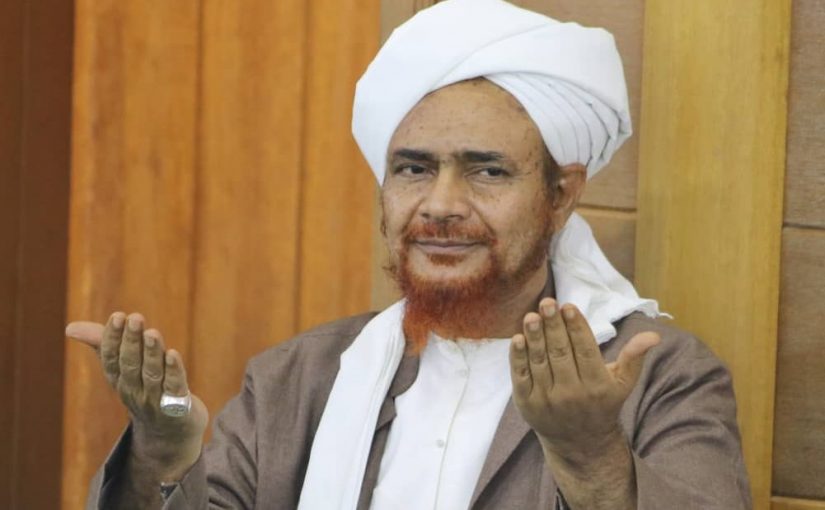The Messenger of Allah ﷺ said that if someone says the following after performing wudu, the eight doors of Paradise will be opened for them and they may enter through whichever one they wish:
أَشْهَدُ أن لا إِلهَ إِلَّا اللهُ وَحْدَهُ لا شَرِيكَ لَهُ وأَشْهَدُ أَنَّ سَيِّدَنَا مُحَمَّداً عَبْدُهُ ورَسُولُه
‘I bear witness that there is no deity save Allah alone. He has no partners. I bear witness that our Master Muhammad is His slave and messenger.’
Generally speaking, before mentioning the Prophet ﷺ it is recommended to say ‘our Master’ (Sayyiduna). Shaykh Ahmad al-Siddiq al-Ghumari compiled a work that mentions forty proofs from the Sunnah to show that this is recommended. There is no doubt that the Prophet is the master of the children of Adam and the master of creation.
One should also say:
الَّلهُمَّ اجْعَلْنِي مِنْ التَّوَّابينَ واجْعَلْنِي مِنْ المُتَطَهِّرينَ و اجْعَلْنِي مِنْ عِبادِكَ الصَّالِحين
سُبْحَانَكَ الَّلهُمَّ وبِحَمْدِكَ أَشْهَدُ أَنْ لا إِلهَ إِلَّا أَنْتَ أَسْتَغْفِرُكَ وأَتُوبُ إِليْكَ
‘O Allah, make me amongst those who constantly repent to You and seek to purify themselves and amongst Your pious slaves.
‘Transcendent are You, O Allah, and praise be to You as You praise Yourself. I bear witness that there is no deity save You. I seek Your forgiveness and I repent to You.’
This supplication has also been narrated in a sound hadith:
اللَّهُمَّ اغْفِرْ لِي ذَنْبِي ووَسِّعْ لِي في دَارِي وبَارِكْ لِي في رِزْقِي
‘O Allah, forgive me my sins, make expansive my abode, and bless and increase my provision.’
It is recommended to end the supplication with prayers upon the Prophet, since through that the supplication will be accepted. In fact, some scholars say that prayers upon the Prophet should come at the beginning and the end of any supplication, and even the middle. This is because Allah honours His Prophet by accepting the prayers of the believers upon him, and Allah is too generous not to accept the supplication which accompanies them.
You should make the supplication facing the qiblah, raising your arms and eyes to the heavens, for just as the Ka’bah is the qiblah of the prayer, the heavens are the qiblah of supplication. Many of the early Muslims would raise their eyes to the heavens when supplicating. This does not mean, of course, that Allah is in a place, whether it be the Ka’bah or the heavens.
Reciting Surat al-Qadr three times after performing wudu and Ayat al-Kursi has also been narrated.
The full supplications with all the narrations combined are as follows:
أَشْهَدُ أنْ َلاّ إِلهَ إِلَّا اللهُ وَحْدَهُ لا شَرِيكَ لَهُ وأَشْهَدُ أَنَّ سَيِّدَنَا مُحَمَّداً عَبْدُهُ ورَسُولُهُ
الَّلهُمَّ اجْعَلْنِي مِنْ التَّوَّابينَ واجْعَلْنِي مِنْ المُتَطَهِّرينَ و اجْعَلْنِي مِنْ عِبادِكَ الصَّالِحين
سُبْحَانَكَ الَّلهُمَّ وبِحَمْدِكَ أَشْهَدُ أَنْ لا إِلهَ إِلَّا أَنْتَ أَسْتَغْفِرُكَ وأَتُوبُ إِليْكَ
اللَّهُمَّ اغْفِرْ لِي ذَنْبِي ووَسِّعْ لِي في دَارِي وبَارِكْ لِي في رِزْقِي
وصَلَّى اللهُ على سَيِّدِنا مُحَمَّدٍ وعلى آلِ سَيِّدِنا مُحَمَّدٍ وسَلَّم
Extracts from Sayyidi Habib Umar bin Hafiz’s classes on the rulings and etiquettes of purification from Habib Abdullah bin Husayn Balfaqih’s “Kifayat al-Raghib” in Shafi fiqh.

